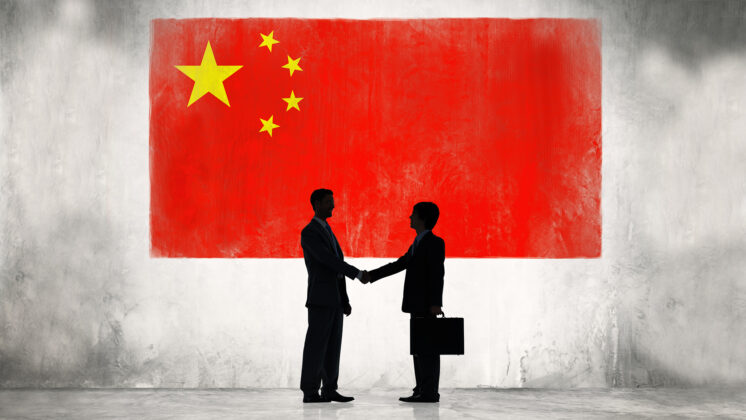If you are a frequent traveler to China or are engaged in business with Chinese companies, you may have experienced seeing the “two faces” of Chinese people: their “public” and “private” faces.
In public, Chinese people can be seen as self-centered, rude, and insensitive. A good example of this is the scores of people you see pushing and shoving mercilessly to get on trains in Chinese cities.
On the other hand, when it comes to their private lives, Chinese people show deep humility and affection towards their family, relatives, and friends. In particular, filial piety—respect for one’s parents, elders, and ancestors—has been a central value in China for millennia. The reverse is also true; parents in China are willing to sacrifice enormously for their children. But while this might seem like something that only applies to personal relationships, it’s actually critical for understanding Chinese business culture.
In May this year, I had the opportunity to go to Shanghai with GLOBIS University’s CEIBS Visit Program. This was a good opportunity to examine the Chinese way of thinking firsthand and understand how Japanese (and other foreign) companies need to consider cultural differences before doing business in China.
Next Article
The Cross-Culture Competency Quiz: Are You Ready to Join the Global Community?
8 Scales to Chart a Culture Map for Better Management
From the Outside Looking in on Chinese Business Culture
I used to work for a typical Chinese family-owned company in Japan. Everybody except me was related to the president or vice president. In the first few months, I was treated as an outsider—everyone wore their public face when dealing with me. I felt completely locked out of Chinese business culture.
However, after a few months working together and building trust, I experienced a gradual shift in attitude and communication style. I was asked to run some personal errands for the president, totally unrelated to my job.
In Japan, this may be seen as crossing the line (or even power harassment), but in Chinese business culture, this is a sign of trust. I followed orders without complaining and was eventually accepted as an insider—part of the family. By building a good relationship and connections with the family, my work experience improved dramatically. Eventually, I could count on their full support whenever I needed it.

Guanxi: The Pillar of Chinese Business Relationships
The concept of building personal relationships, or guanxi, is extremely important in Chinese business culture and crucial when doing business. In one of our CEIBS study visits to a leading online real estate company, the cofounder explained how he and the CEO had established a relationship during their time on the CEIBS MBA program. They’d had long talks walking across the Gobi Desert together, and they’d shared the same dream of revolutionizing China’s real estate market.
It was a classic example of good guanxi.
The idea of understanding Chinese business culture via guanxi is nothing new. Konosuke Matsushita (founder of Panasonic) cultivated a strong relationship with China’s former leader Deng Xiaoping in the 1980s. The bond they formed demonstrated successful Japanese-Chinese guanxi.
Deng personally visited Matsushita’s Osaka factory in 1978 to ask for help modernizing China’s manufacturing industry. Seeing Deng’s humbleness and sincerity, Matsushita did not hesitate to agree. Until Matsushita’s death in 1989, he and Deng built on their special guanxi. Matsushita made significant contributions to China’s economic growth and helped to improve Chinese people’s lifestyles dramatically. In return, Matsushita earned the Chinese government’s respect and goodwill and gained unprecedented expertise in manufacturing and operations in China.
Harmony: The Ultimate Goal of Chinese Business
The concept of guanxi is deeply rooted in the Chinese philosophy of Confucian harmony, which is achieved through good human relationships and connections. Of course, good relationships cannot be built in a day. Building guanxi requires a substantial amount of time and effort from both sides. It is critical for non-Chinese people to understand the mechanisms of Chinese interpersonal relationships and work tactfully to develop them.
It may seem like a lot of work (and again, it often is), but the payoff is worth it. Once your Chinese counterparts accept you as an insider, doing business in China will be easier than you ever imagined.





